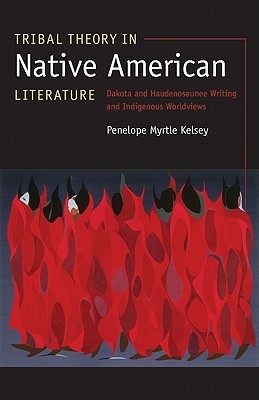
- We will send in 10–14 business days.
- Author: Penelope Myrtle Kelsey
- Publisher: University of Nebraska Press
- ISBN-10: 080323273X
- ISBN-13: 9780803232730
- Format: 14 x 21.6 x 1.1 cm, minkšti viršeliai
- Language: English
- SAVE -10% with code: EXTRA
Tribal Theory in Native American Literature (e-book) (used book) | bookbook.eu
Reviews
Description
Scholars and readers continue to wrestle with how best to understand and appreciate the wealth of oral and written literatures created by the Native communities of North America. Are critical frameworks developed by non-Natives applicable across cultures, or do they reinforce colonialist power and perspectives? Is it appropriate and useful to downplay tribal differences and instead generalize about Native writing and storytelling as a whole? Focusing on Dakota writers and storytellers, Seneca critic Penelope Myrtle Kelsey offers a penetrating assessment of theory and interpretation in indigenous literary criticism in the twenty-first century. Tribal Theory in Native American Literature delineates a method for formulating a Native-centered theory or, more specifically, a use of tribal languages and their concomitant knowledges to derive a worldview or an equivalent to Western theory that is emic to indigenous worldviews. These theoretical frameworks can then be deployed to create insightful readings of Native American texts. Kelsey demonstrates this approach with a fresh look at early Dakota writers, including Marie McLaughlin, Charles Eastman, and Zitkala-Sa and later storytellers such as Elizabeth Cook-Lynn, Ella Deloria, and Philip Red Eagle. This book raises the provocative issue of how Native languages and knowledges were historically excluded from the study of Native American literature and how their encoding in early Native American texts destabilized colonial processes. Cogently argued and well researched, Tribal Theory in Native American Literature sets an agenda for indigenous literary criticism and invites scholars to confront the worlds behind the literatures that they analyze. Penelope Myrtle Kelsey is an assistant professor of English at Western Illinois University.
EXTRA 10 % discount with code: EXTRA
The promotion ends in 21d.12:41:33
The discount code is valid when purchasing from 10 €. Discounts do not stack.
- Author: Penelope Myrtle Kelsey
- Publisher: University of Nebraska Press
- ISBN-10: 080323273X
- ISBN-13: 9780803232730
- Format: 14 x 21.6 x 1.1 cm, minkšti viršeliai
- Language: English English
Scholars and readers continue to wrestle with how best to understand and appreciate the wealth of oral and written literatures created by the Native communities of North America. Are critical frameworks developed by non-Natives applicable across cultures, or do they reinforce colonialist power and perspectives? Is it appropriate and useful to downplay tribal differences and instead generalize about Native writing and storytelling as a whole? Focusing on Dakota writers and storytellers, Seneca critic Penelope Myrtle Kelsey offers a penetrating assessment of theory and interpretation in indigenous literary criticism in the twenty-first century. Tribal Theory in Native American Literature delineates a method for formulating a Native-centered theory or, more specifically, a use of tribal languages and their concomitant knowledges to derive a worldview or an equivalent to Western theory that is emic to indigenous worldviews. These theoretical frameworks can then be deployed to create insightful readings of Native American texts. Kelsey demonstrates this approach with a fresh look at early Dakota writers, including Marie McLaughlin, Charles Eastman, and Zitkala-Sa and later storytellers such as Elizabeth Cook-Lynn, Ella Deloria, and Philip Red Eagle. This book raises the provocative issue of how Native languages and knowledges were historically excluded from the study of Native American literature and how their encoding in early Native American texts destabilized colonial processes. Cogently argued and well researched, Tribal Theory in Native American Literature sets an agenda for indigenous literary criticism and invites scholars to confront the worlds behind the literatures that they analyze. Penelope Myrtle Kelsey is an assistant professor of English at Western Illinois University.


Reviews